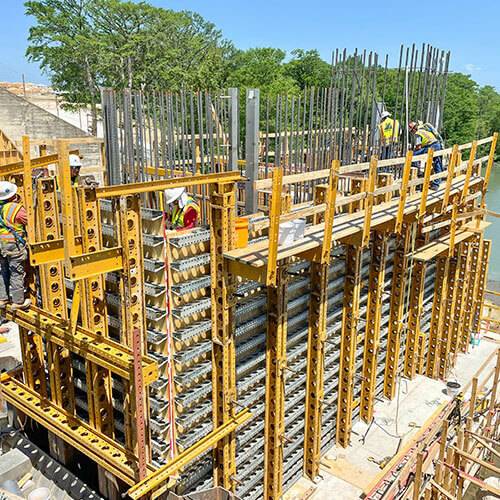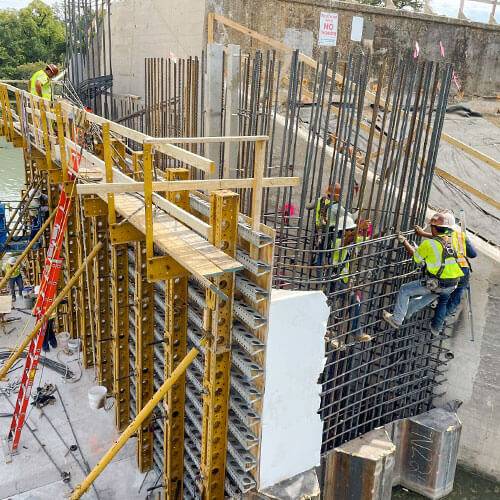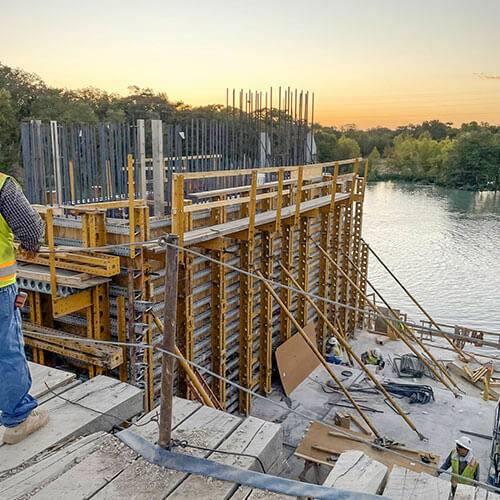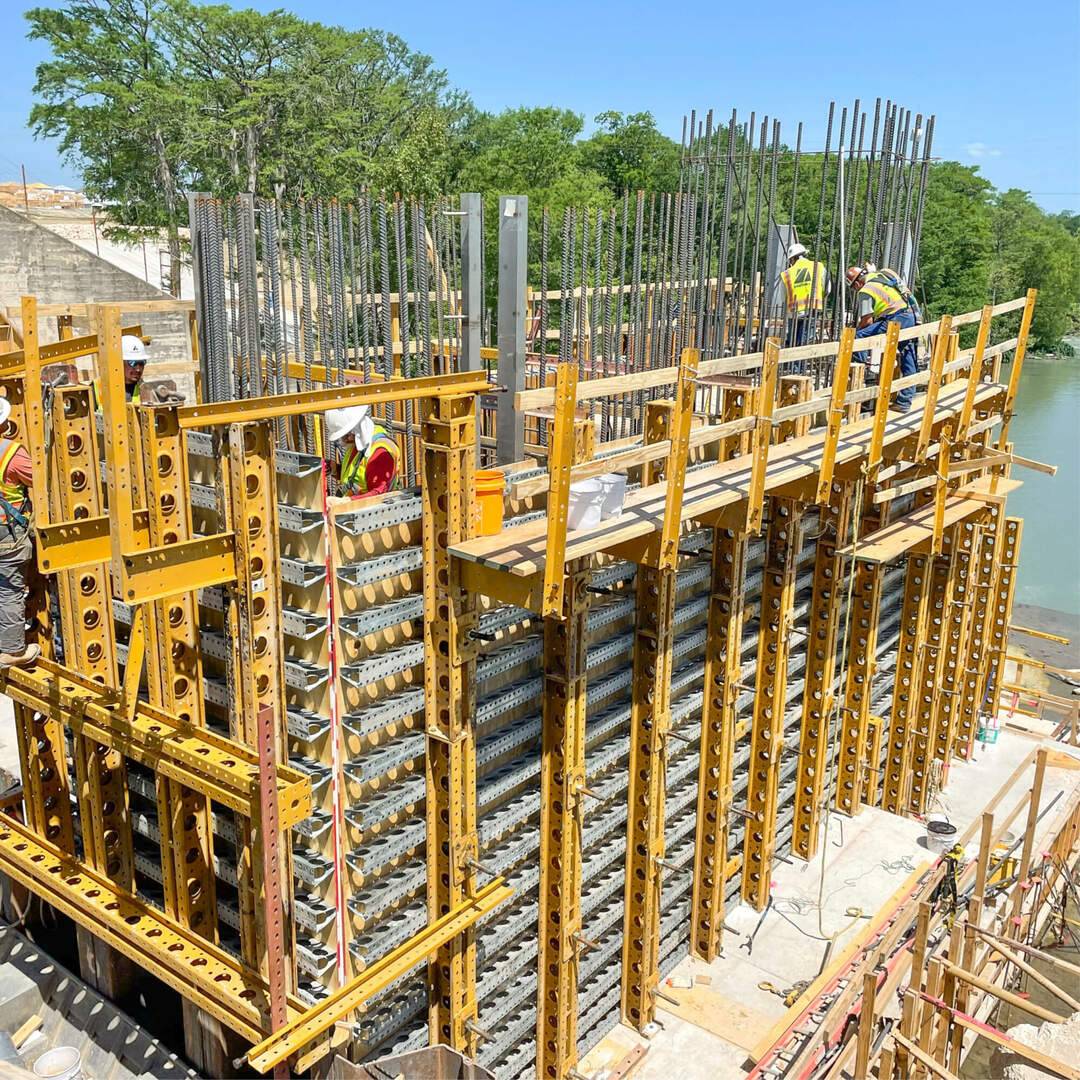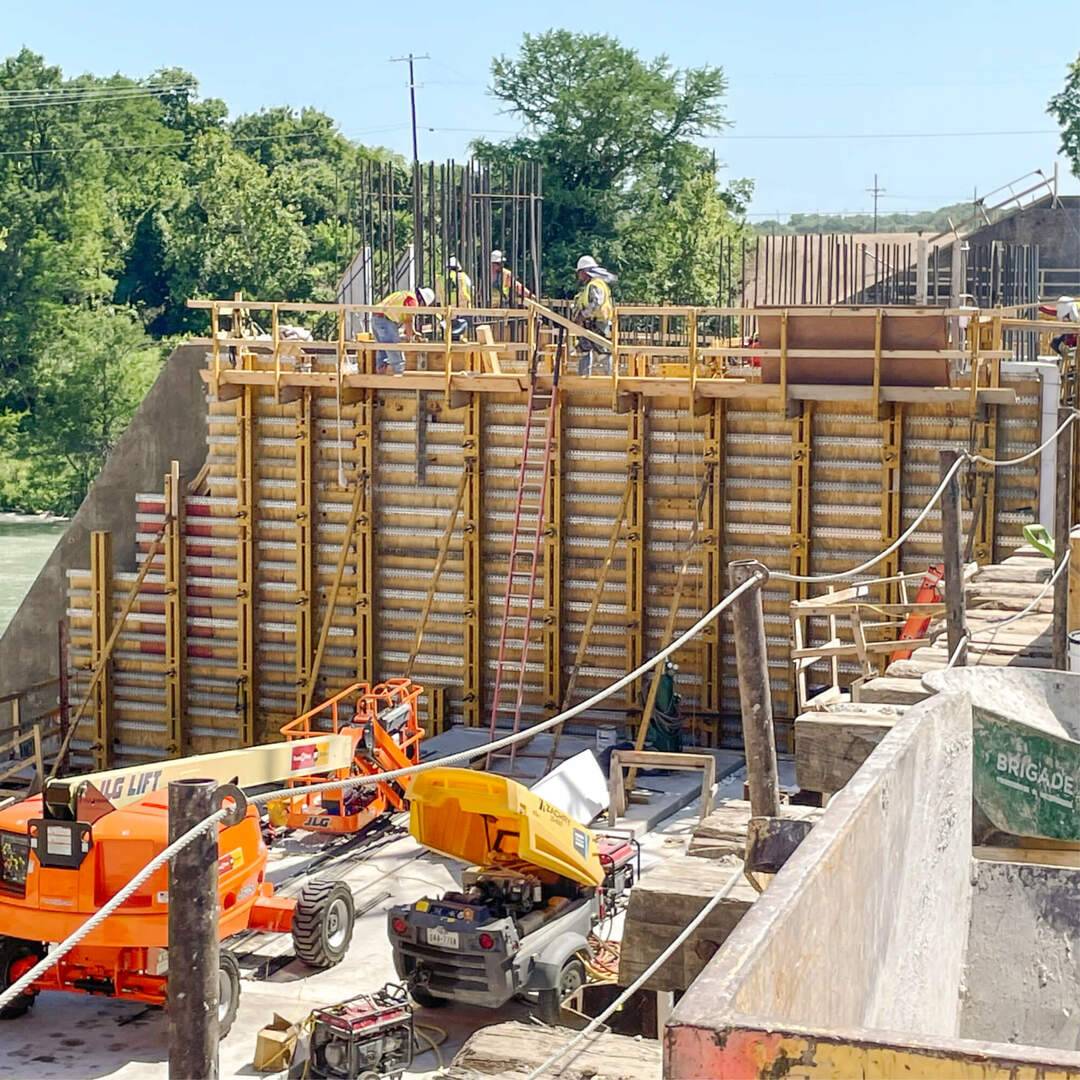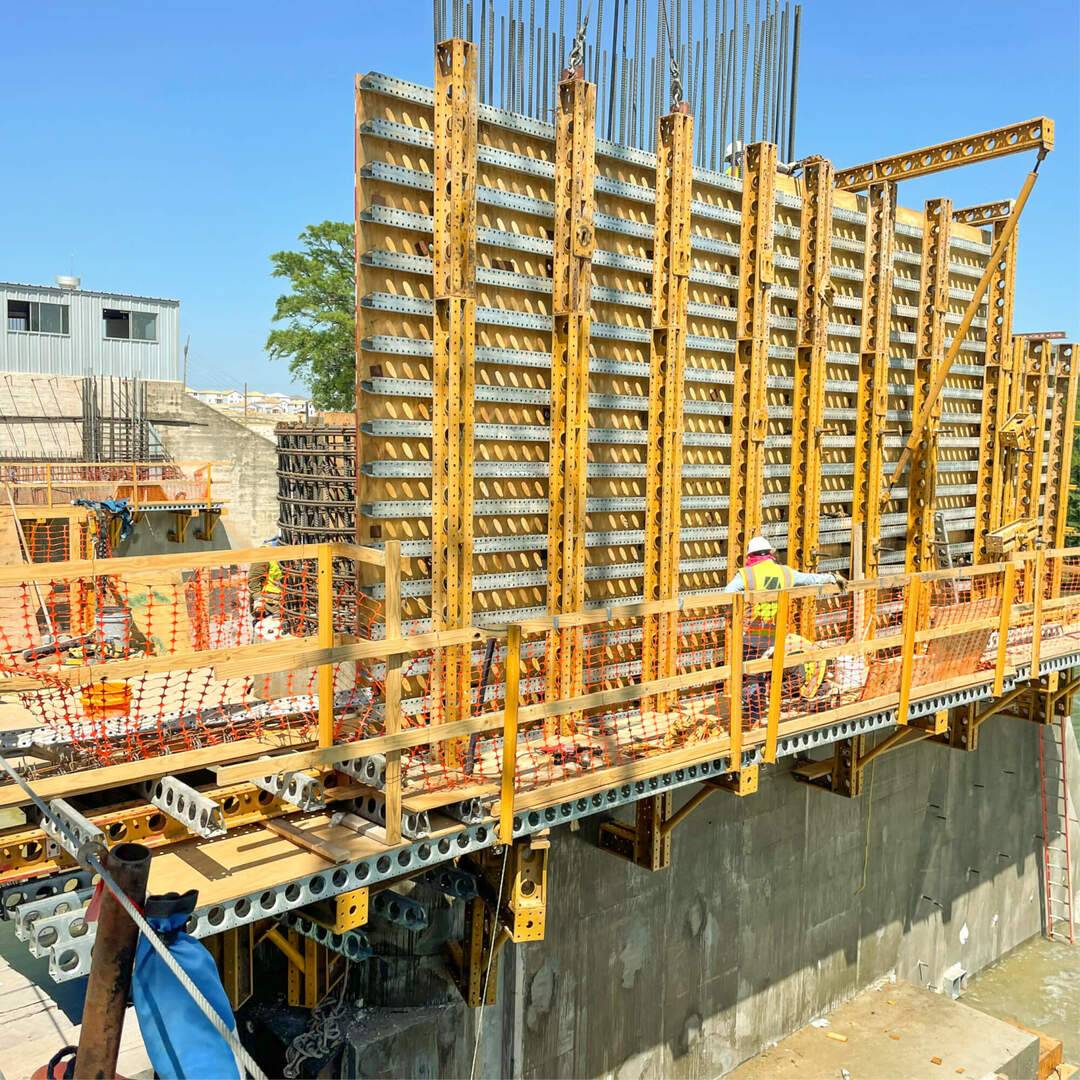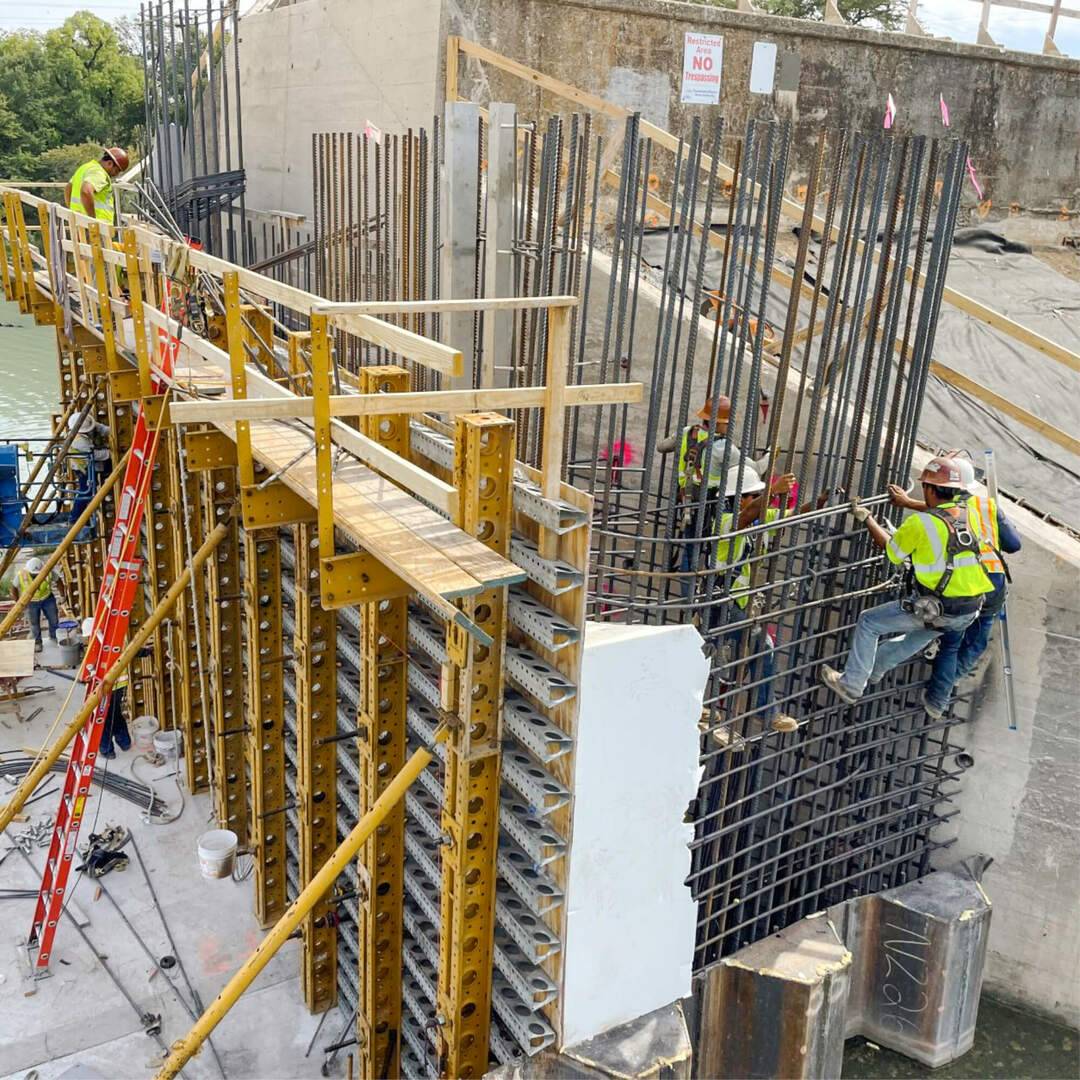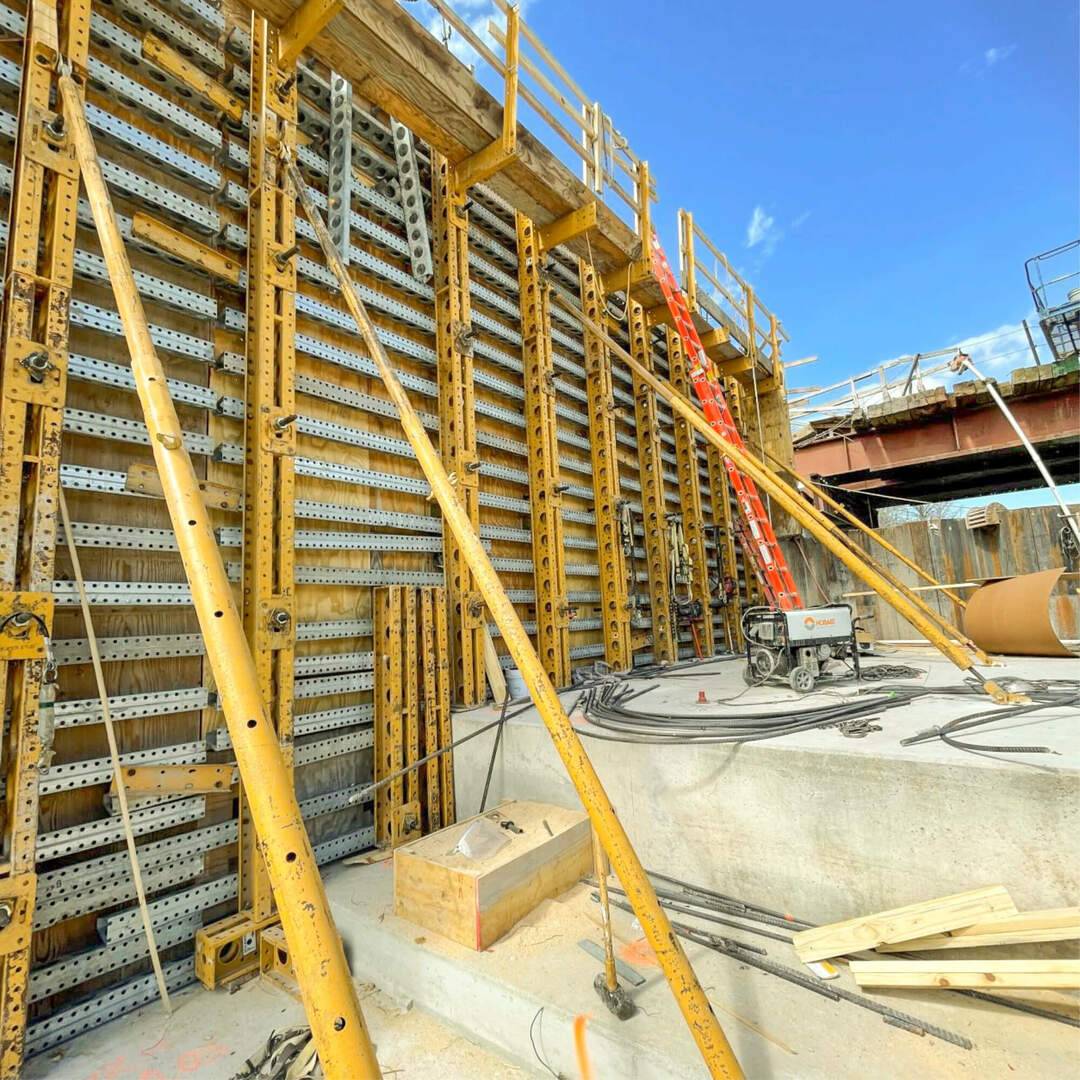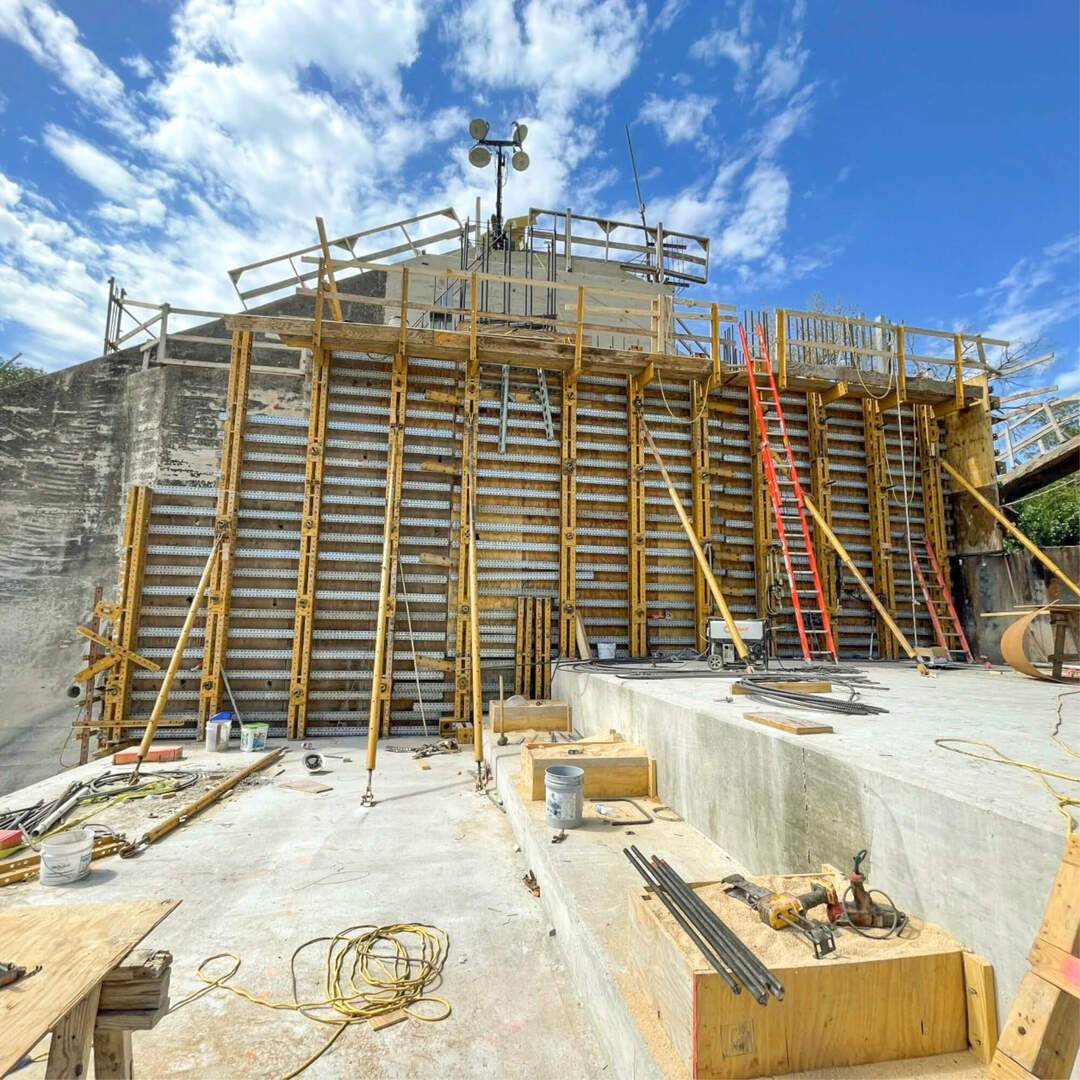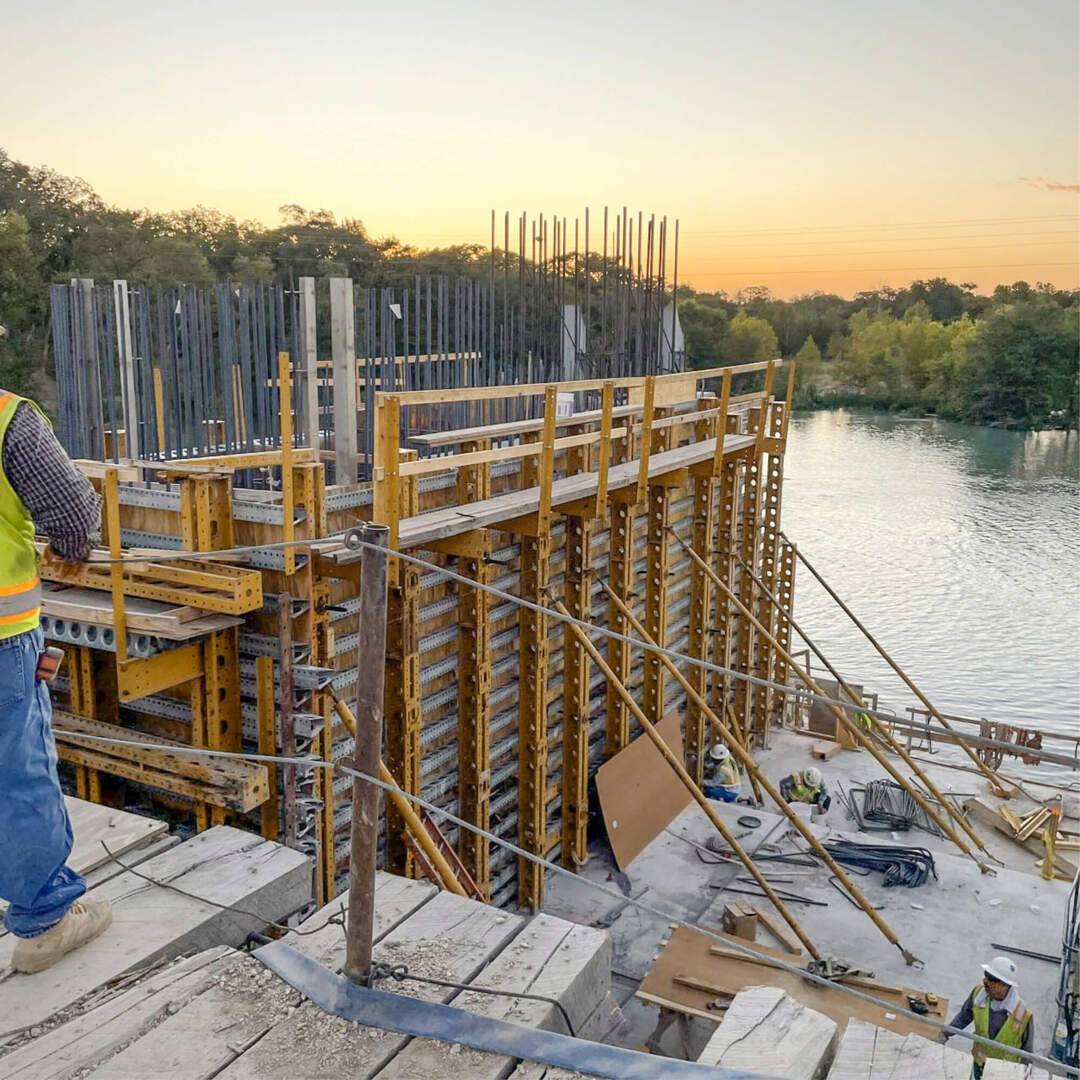
Lake Dunlap Dam Restoration Project | New Braunfels, Texas
Dam Formwork, Manufacturers & Suppliers
New Braunfels, Texas
Cast-In-Place Concrete for Dam Construction
The American Society of Civil Engineers (ASCE) states that the United States has more than 91,000 dams currently in operation. The material most used in dam construction is cast-in-place concrete. The current average age of U.S. dams is 57 years. Dam failures endanger livelihood, landscape, and life-supportive infrastructure, costing billions of dollars. Preventative maintenance and repair are critical in extending the life of these structures.
Construction of Hydroelectric Dam
Lake Dunlap Reservoir was developed in 1931 with the construction of a hydroelectric dam on the Guadalupe River outside of New Braunfels, Texas. The Texas Power Corporation first owned and operated the Lake Dunlap dam, providing hydroelectric power to the area. Today the Guadalupe-Blanco River Authority (GBRA) owns and manages the Lake Dunlap dam to maintain the reservoir as a place for locals and visitors to recreate and to provide hydroelectric power to the area.
91-year-old Dam Structure Fails
On May 14, 2019, the middle of three spillway gates on the dam at Lake Dunlap Reservoir failed, lowering the lake by approximately 15 within hours. Lakeside residents and other community members spent the next two years developing the Lake Dunlap Water Control & Improvement District (WCIP).
Plans & Funding to Repair Concrete Dam
WCIP was authorized to raise the funds to repair the dam. Together with the GBRA and the Texas Water Development Board, the Lake Dunlap Dam Restoration Project was created. The project included a solution to replace the spill gates and reinforce the strength of the lower concrete portions of the dam.
Reinforcing of Concrete Dam Structure
The GBRA awarded the restoration project to Zachry Construction of San Antonio, Texas. As work began in 2020 to reinforce the existing structure, a temporary trestle bridge was constructed to provide crawler crane access for the project.
A Sheet Pile Cofferdam
Located at the first bay of the dam, a sheet pile cofferdam was driven down to river bedrock. This cofferdam provided the water retention required to begin the restoration while providing a safe work environment for the Zachry crew above and below current lake levels. The cofferdam was moved as work progressed to the second and third bays allowing water to flow through the first bay.
Construction of Concrete Wall Piers
Reinforcing the existing concrete structure means encasing the current 91-year-old concrete wall piers with 3 of concrete on each side. Additionally, the design requires that 20 of height be added to each pier wall to accommodate three hydraulically driven spillway gates, as well as a new gantry crane installed at the top of the concrete dam structure to allow for easier future dam maintenance.
Dam Spillway Overflow Walls & Wall Piers Required Flexible Formwork System
Zachry Construction, a long-time EFCO partner, chose to lease EFCO’s E-BEAM & SUPER STUD® formwork system for the cast-in-place solution required to armor the existing dam structure.
Reinforced Dam Structure
Once completed, the newly reinforced dam structure will help return water levels to pre-failure elevations and provide recreational access to thousands of Central Texas residents and visitors. The forming and shoring experts at EFCO are proud to be involved with this project by supporting our long-time partner, Zachry Construction.
EFCO EQUIPMENT
EFCO FORMWORK SPECIALISTS–DALLAS
Paul Drey, Senior Territory Manager
Matt Bruce, Regional Field Supervisor
Katie McComb P.E., Engineer
Zachry Construction Team
Adam Saur Project Manager
Manny Viscaya Superintendent
The E-BEAM & SUPER STUD wall formwork gave us the flexibility to work around the mechanical embeds required for the gates and changing wall elevations while minimizing the number of cast-in-place formwork ties required. This formwork system helped to reduce the labor required to jump forms for the various lifts on the pier structures.
-Adam Saur, Project Manager

